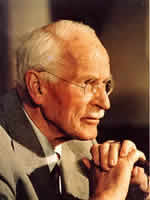(a lecture)
'Good Reasons for "Believing" in God' - Dan Dennett
'Thank Goodness!'
Two weeks ago, I was rushed by ambulance to a hospital where it was determined by c-t scan that I had a "dissection of the aorta"—the lining of the main output vessel carrying blood from my heart had been torn up, creating a two-channel pipe where there should only be one. Fortunately for me, the fact that I'd had a coronary artery bypass graft seven years ago probably saved my life, since the tangle of scar tissue that had grown like ivy around my heart in the intervening years reinforced the aorta, preventing catastrophic leakage from the tear in the aorta itself. After a nine-hour surgery, in which my heart was stopped entirely and my body and brain were chilled down to about 45 degrees to prevent brain damage from lack of oxygen until they could get the heart-lung machine pumping, I am now the proud possessor of a new aorta and aortic arch, made of strong Dacron fabric tubing sewn into shape on the spot by the surgeon, attached to my heart by a carbon-fiber valve that makes a reassuring little click every time my heart beats.
Yes, I did have an epiphany. I saw with greater clarity than ever before in my life that when I say "Thank goodness!" this is not merely a euphemism for "Thank God!" (We atheists don't believe that there is any God to thank.) I really do mean THANK GOODNESS! There is a lot of goodness in this world, and more goodness every day, and this fantastic human-made fabric of excellence is genuinely responsible for the fact that I am alive today. It is a worthy recipient of the gratitude I feel today, and I want to celebrate that fact here and now.


.jpg)

 (Opracowane na podstawie przedmowy Jerzego Prokopiuka do pracy: "Odpowiedzi Hiobowi" Carla Gustava Junga, Wyd. "Ethos", Warszawa 1995)
(Opracowane na podstawie przedmowy Jerzego Prokopiuka do pracy: "Odpowiedzi Hiobowi" Carla Gustava Junga, Wyd. "Ethos", Warszawa 1995)